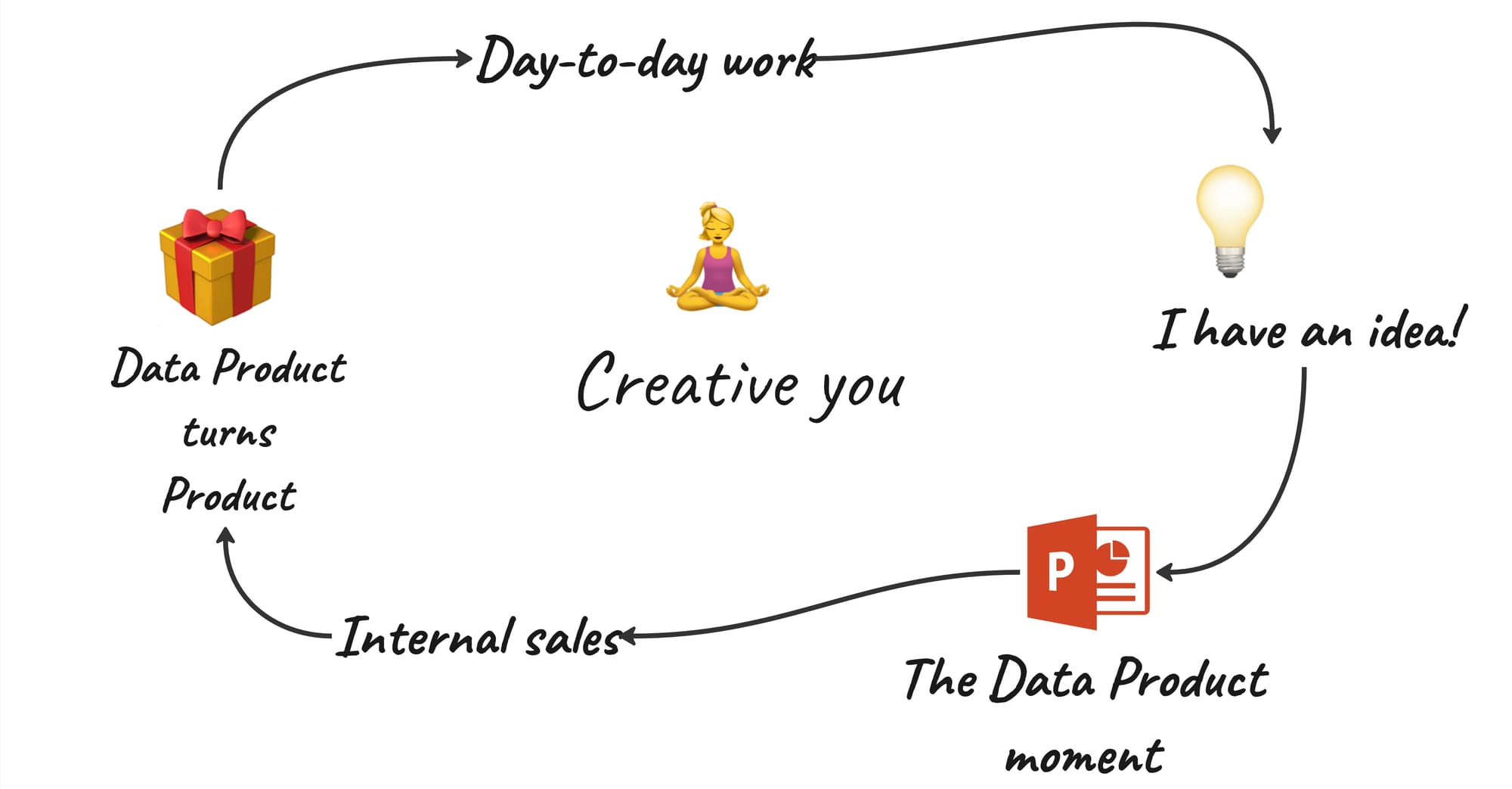On data products

I like the idea. It sounds like a zero to one story. An act of creation. Compared to (long-sight), meh, dashboards. As tricky as it might be to define it, I will give it a go.
On one end of the spectrum, there is an idea that in our age, any product—including the wooden floor I am sitting on right now—is a data product. Simply because the producer company, including its upstream partners, relied on numbers, reports, calculations, tracked experiments, and simulations to produce what it ended up producing. In this line of thought, the term "data product" would be similar to the term "data science" when applied to statistics—a marketing jargon we came up with to keep things spicy.
On the opposite side of a spectrum, a data product would only be that act of human creation, which literally spits data out at you. Like Grammarly, for example, in which case the data gets sugar-coated with something we call language. Or Spotify, where data points ensure we get the maximum amount of dopamine from the next track. Or, my Garmin Forerunner 55 that is literally a highly-sophisticated BI dashboard that I carry around all day long. And not only day.
However, there is no need to call a watch, a writing-assistant, or a wooden floor a data product. Simply because they already are, well, a watch, a writing-assistant, and a wooden floor. Which brings me to a thought that a product idea that had a clearly defined practical application from the moment of its conception does not turn into a data product. But rather into something that can be successfully marketed without the word "data".
With the last thinking exercise, we have gotten real close to figuring out what a data product really is. Here is my go at the definition. Data product—is a digital service that serves data or insights to its users under one sauce or the other and is an unintended by-product of the company's core specialty.
This initial definition immediately brings to mind an example of a company for which I helped build what essentially was a data product. But we never referred to it as a "data product" while building it, nor did the company market it as a "data" product. It stressed the benefits it brought and the pains it solved. You know, the regular marketing stuff. Which brings me to another important distinction that defines a data product. A data product is a term that is used internally. Aha! Now we are very close. Here is my experience-backed reasoning for this.
A "data product" is a term adopted by employees who saw an opportunity to crunch out an extra dollar from the data they have already been sitting on. To sell their idea to management, they would create a presentation with a bold title - "Data Product" (hint: capitalizing both words made it look more legit). The presentation would typically include some boxes-and-arrows style diagrams, inevitably featuring the company's database or two. I'm intimately familiar with these details, as I've been through the process a couple of times myself.
This first presentation is unlikely to have a longed-for effect of getting senior management buy-in from the first time on—as they rarely do. So the employee would need to put on his entrepreneurial hat and market their idea internally. During this time, that bold title on the presentation slide might have a charming effect on other employees. After all, they've been doing their own mundane thing for quite some time—and by doing so enriching the company's proprietary database—but it turns out that all this time they have been co-creating this delightful thing — a data product. Pleasant surprises like this do not happen every day at the workplace.
Once the senior management buy-in is there, the "data product" label will have to go. It will be replaced by a sexy name. Or a boring one. Depends on the senior management mood and marketing department argumentation. From then on, your newly-born "data product" grows and becomes a product. A real product. Working on it will become mundane over time, however, you will discover a deeper meaning in your day-to-day. After all, you might be, unknowingly, working up a base for the new data product, a new act of creation that you will recognize, define, and shape out of something that just an hour ago seemed to be a given—some data flowing around the company.
